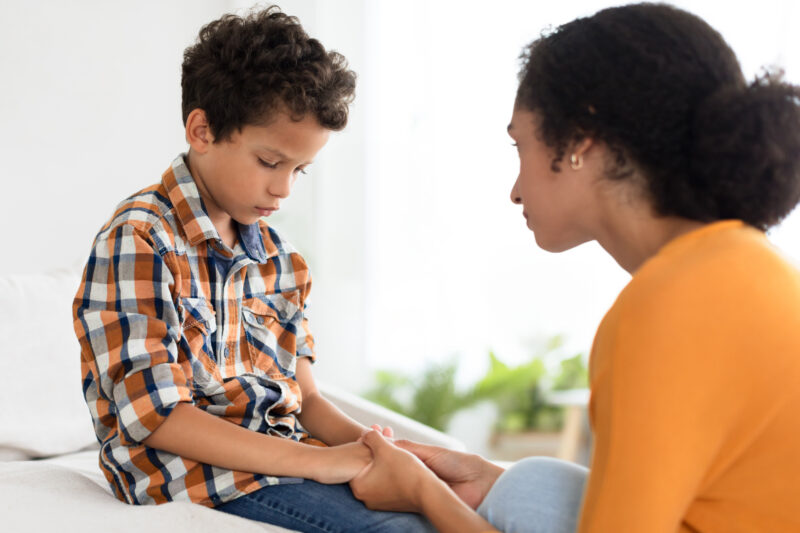 Helping Your Child To Manage Frustration. . . to work harder, practice longer, and go after our goals. The downside? It doesn’t feel good. Extreme cases of frustration can even make us feel the need to “give-up” or “shut down”. What picture comes to mind when you think of frustration? A cartoon with smoke coming out of its ears? A sad emoji face? Did you know that there are actually MANY faces of frustration?! Take a moment and think about what you may look like when you’re feeling frustrated. How about your spouse or child . . . do you all have the same “look”, or is it different?
Helping Your Child To Manage Frustration. . . to work harder, practice longer, and go after our goals. The downside? It doesn’t feel good. Extreme cases of frustration can even make us feel the need to “give-up” or “shut down”. What picture comes to mind when you think of frustration? A cartoon with smoke coming out of its ears? A sad emoji face? Did you know that there are actually MANY faces of frustration?! Take a moment and think about what you may look like when you’re feeling frustrated. How about your spouse or child . . . do you all have the same “look”, or is it different?
Feelings of Frustration
Just as we may LOOK different when we feel frustrated, we also FEEL differently. To understand how your child is feeling, take a look at the emotions that may arise for them (tip – consider which of these come up for you): Anger Sadness Helplessness Panic Annoyance Anxiety We are all human. We all get frustrated. Recognizing these frustrations and using strategies creates an opportunity for you to model positive coping skills for your child. Believe it or not, they are looking at us and watching our reactions all the time! Take a moment to reflect:
● How do you cope with your child’s frustrated feelings and reactions?
● Do you tend to catastrophize or/and over empathize with your child’s problem?
● Are you able to control your own reactions?
Remember, children are incredibly perceptive. If you have difficulty holding their frustrated feelings, they will too! Help your child manage their frustrations by talking about what it looks like and feels like for them. Share what you notice when they are frustrated . . . does their reaction come in the form of a shut-down, outburst, avoidance? Help them put a name to their feelings and then explore the strategies that can help them feel more calm and grounded in the moment.
Coping Strategies
So what are some coping strategies to model? Here are a few simple, developmentally appropriate tools that you can use to support your child (and yourself) to handle day-to-day challenges.
● Take a deep breath (soup breath & belly breath are popular with my kiddos)
● Walk away
● Run a lap
● Name it to Tame it! – Dr. Daniel Siegel
● Drink water or eat a snack
● Approach situations with a growth mindset (Changing “I can’t do this!” to “I can’t do this, yet”)
● Support your child to consider the worst-case scenario AND how likely (or unlikely) that is to happen.
Practice, Practice, Practice
To help your child use these strategies when they need them most, they will need to practice them (during non-stressful times). You wouldn’t run a race without training first. Similarly, to help your child access calming strategies when they need them most, they will need to strengthen their emotional muscle memory! Remember, frustration is not the enemy or something to eradicate. It is part of what makes us human. When frustration rears its head for your child (or you ;)) just remember to notice, name and soothe.

© Copyright 2023 GoodTherapy.org. All rights reserved.
The preceding article was solely written by the author named above. Any views and opinions expressed are not necessarily shared by GoodTherapy.org. Questions or concerns about the preceding article can be directed to the author or posted as a comment below.



















 Helping Your Child To Manage Frustration. . . to work harder, practice longer, and go after our goals. The downside? It doesn’t feel good. Extreme cases of frustration can even make us feel the need to “give-up” or “shut down”. What picture comes to mind when you think of frustration? A cartoon with smoke coming out of its ears? A sad emoji face? Did you know that there are actually MANY faces of frustration?! Take a moment and think about what you may look like when you’re feeling frustrated. How about your spouse or child . . . do you all have the same “look”, or is it different?
Helping Your Child To Manage Frustration. . . to work harder, practice longer, and go after our goals. The downside? It doesn’t feel good. Extreme cases of frustration can even make us feel the need to “give-up” or “shut down”. What picture comes to mind when you think of frustration? A cartoon with smoke coming out of its ears? A sad emoji face? Did you know that there are actually MANY faces of frustration?! Take a moment and think about what you may look like when you’re feeling frustrated. How about your spouse or child . . . do you all have the same “look”, or is it different?



